The Guardians of Decay: How Broken Systems Use Nice People to Silence Truth
Spot the patterns of emotional manipulation, weaponized civility, and fallacy overload designed to make truth feel unsafe.
When the system starts to crack, lies lose gravity, silence starts to rupture, and something predictable happens. Figures emerge, not to heal or reform but to preserve the rot, not to confront collapse but to cover it.
These are the Guardians of Decay.
They show up with soft voices, professional status, or therapeutic concerns. But their true purpose is to intercept the moment of recognition and smother it in sentiment, jargon, or shame.
They do not argue. They distract.
They do not reason. They reframe.
They do not protect people. They protect the institution that makes them feel safe.
They're not hired guns. They're activated automatons.
When a decaying system faces exposure, the Guardian Of Decay steps in to protect the narrative, not through facts, but fatigue.
They're not loyal to the pursuit of truth.
They're loyal to the story they're still living inside.
What Makes a Guardian of Decay?
This is not a role you get by title. It's a role you perform. A Guardian Of Decay may be credentialed or anonymous. Therapist or journalist. Pastor or moderator. Educator, bureaucrat, influencer, or administrator. They appear across fields and ideologies whenever institutions are questioned, and legitimacy bleeds out.
Their core function is psychological and narrative preservation. If the system fails, they lose more than a career. They lose their identity.
They can't afford to ask if the structure should fall, so they ask how long they can delay people's notice.
The 5T Protocol: Pattern Recognition for Guerrilla Information Warfare Operators
To expose Guardians Of Decay in live information environments, we apply the 5T Protocol for Information Warfare. Each "T" identifies one layer of the suppression system.
T1 – TERRAIN
Guardians Of Decay only appear in contested terrain, domains where trust is collapsing but control still matters, where they feel safe to act. These include:
Education
Public health
Corporate America
The military
Therapy and psychology
Legacy media outlets
Institutional religion
HR, compliance, bureaucratic management layers
Law, courts, etc.
The terrain is always legitimacy-adjacent. Guardians Of Decay do not defend truth; they defend where truth used to live. The terrain is not about facts. It's about who defines "normal" and "acceptable."
T2 – TARGETING
They don't target arguments. They target the arguer. Once you raise a legitimate question, the Guardian Of Decay makes you the story. "You're aggressive." "You're unstable." "You're not trauma-informed." "You're harming the community." Their tactic is not persuasion; it's reputational suffocation.
You are not just wrong. You are the problem.
This is not an accident. It is coordinated targeting designed to isolate the reformer and discredit them socially before theirargument gets oxygen.
T3 – TONE
They rarely yell. They use the language of civility and care. They wear the mask of calm. But beneath that tone is a rigid emotional script. Any deviation from group comfort is cast as violence. Any expression of strength is labeled hostility. The real tone, once decoded, is this: obey or be recast as unsafe.
They speak gently while they shut you down.
This is tone-as-weapon, civility as coercion, calm as camouflage.
T4 – TROPE
Guardians do not speak in logic. They speak in incantations. Their favorite tropes:
"We need healing, not division."
"This isn't productive."
"You're making people feel unsafe."
"That's not how we do things here."
"We need to protect the community."
"Let's center compassion."
"Science says......"
"That's trauma."
These are not arguments. They're shutdown rituals. They bypass the critical mind by hijacking your desire to belong. The trope is the payload. Once accepted, it becomes a veto against inquiry.
T5 – TACTICS
This is where the real war is fought. The Guardian Of Decay's primary weapon are logical fallacies, not as an accident, but as a coordinated method of disorientation. You will rarely see a direct answer. Instead, they create a fog of rhetorical misdirection.
Here are some examples:
Strawman: exaggerate or twist it until it's ridiculous, then attack the fiction.
Circular reasoning: "The system works because it's trusted. It's trusted because it works."
Appeal to authority: "I'm trained in this." "This is settled science." "The experts agree."
Bandwagon fallacy: "This is the accepted view." "Everyone agrees."
False binary: "You can be right, or you can be kind." "You can have truth or unity."
Moving the goalposts: Every answer you give becomes the new starting point for a deeper accusation.
Appeal to emotion: "People are upset." "This is traumatic." "You should think about how others feel."
Motte-and-bailey: Defend a weak claim, then retreat into an unfalsifiable generality.
Flooding: Overwhelm the space with confusion, contradictions, and jargon until orientation breaks.
The fallacies are not the byproduct. They are the tactic. It is the clearest signal you're dealing with a Guardian Of Decay. Once you see the pattern, their power drops by half.
Checklist: Confirming a Guardian of Decay
Use this when operating in narrative-disputed terrain. Five or more boxes checked = active Guardian Of Decay behavior.
Reframes inquiry as aggression or negativity
Substitutes credentials for reasoning
Uses guilt, fear, or fatigue to end discussion
Deploys multiple logical fallacies
Accuses reformers of being selfish, divisive, or dangerous
Invokes healing or unity to shut down critique
Claims neutrality while reinforcing institutional narratives
Avoids argument; attacks character
Relies on jargon or therapeutic language instead of logic
Cannot explain why the system works—only why questioning it is wrong
How to Win Without Attacking
You don't need to overpower the Guardian Of Decay if you operate effectively in the Guerrilla Information War. You need to stay clear long enough for them to expose themselves.
Let them speak. Let them strawman, guilt-trip, and reframe. Let them pile up credential claims while avoiding basic logic. Let them invoke community as a cudgel. Let them bury your clarity in a swamp of emotional landmines.
If you hold your frame and refuse to leave the terrain of truth, they will do your work for you.
They will become the proof of the system's failure.
It's over once your audience sees the pattern, hears the tone, spots the trope, and tracks the fallacies. The spell is broken.
Why They Fight
The Guardian of Decay is not defending others. They are defending the story that gave their life shape. If the system falls, so does their sense of self. They are clinging to order, not for your sake, but for theirs.
They do not fear chaos. They fear reorientation.
How to Defend Yourself
Hold the frame. Name the tactic. Never let them redefine the terrain.
Refuse the false binary between truth and kindness.
Refuse the frame that casts discomfort as harm.
Refuse the collapse into a spiral of jargon.
Stay rooted in inquiry. Stay surgical in logic. Stay patient.
Guardians aim to exhaust. But if you refuse to play their game, they burn out. They collapse under the weight of their contradictions.
You don't need to attack them.
You need to stay upright long enough for the mask to fall.
The Road Ahead
The Guardians of Decay are multiplying because collapse is accelerating. The system has lost credibility in health, education, governance, psychology, finance, and beyond. There's no faith left—just enforcement. So they send the Guardians to moralize, moderate, and muffle.
They say inquiry is dangerous.
They say truth is cruelty.
They say clarity is violence.
Let them talk.
The future does not belong to those who cling to decay.
It belongs to those who keep their minds free.
Once you see it, you can't unsee it.
So keep seeing.
Keep thinking.
Keep going.
And never, ever give your silence to those who earn your clarity.
Narrative Weapons Are Being Used Against You; This 5-Part Framework Shows You How to Identify Them And Fight Back
Don’t Just Keep Up. Outmaneuver. Subscribe.
You’re Not Crazy, The System Is
There comes a moment in every failing system when something predictable happens. Just as the cracks widen and the contradictions grow harder to ignore, a familiar figure emerges, not to repair or reform but to preserve the rot.

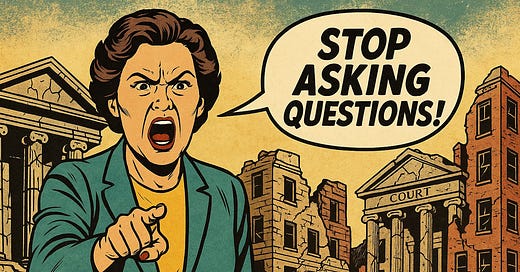



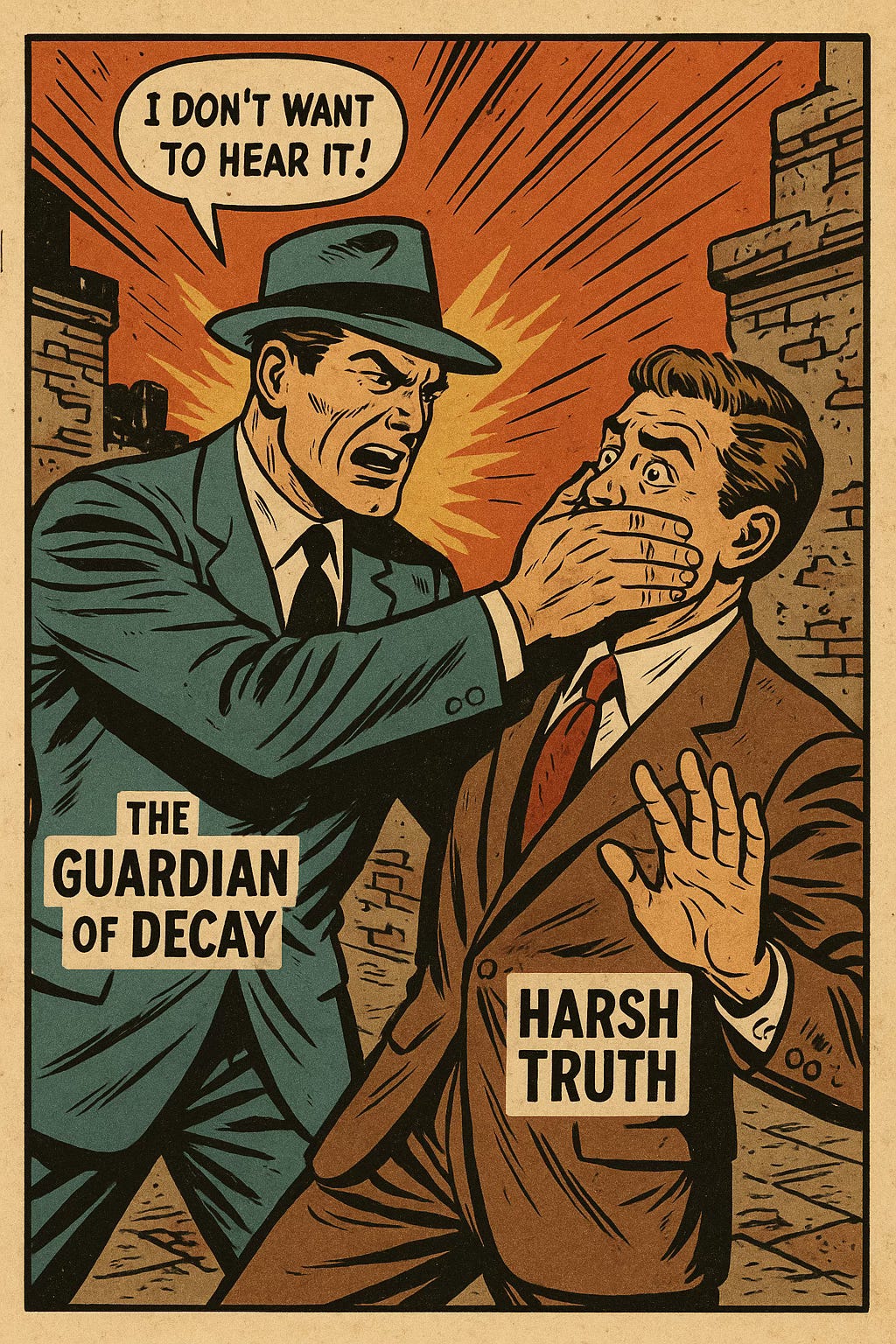
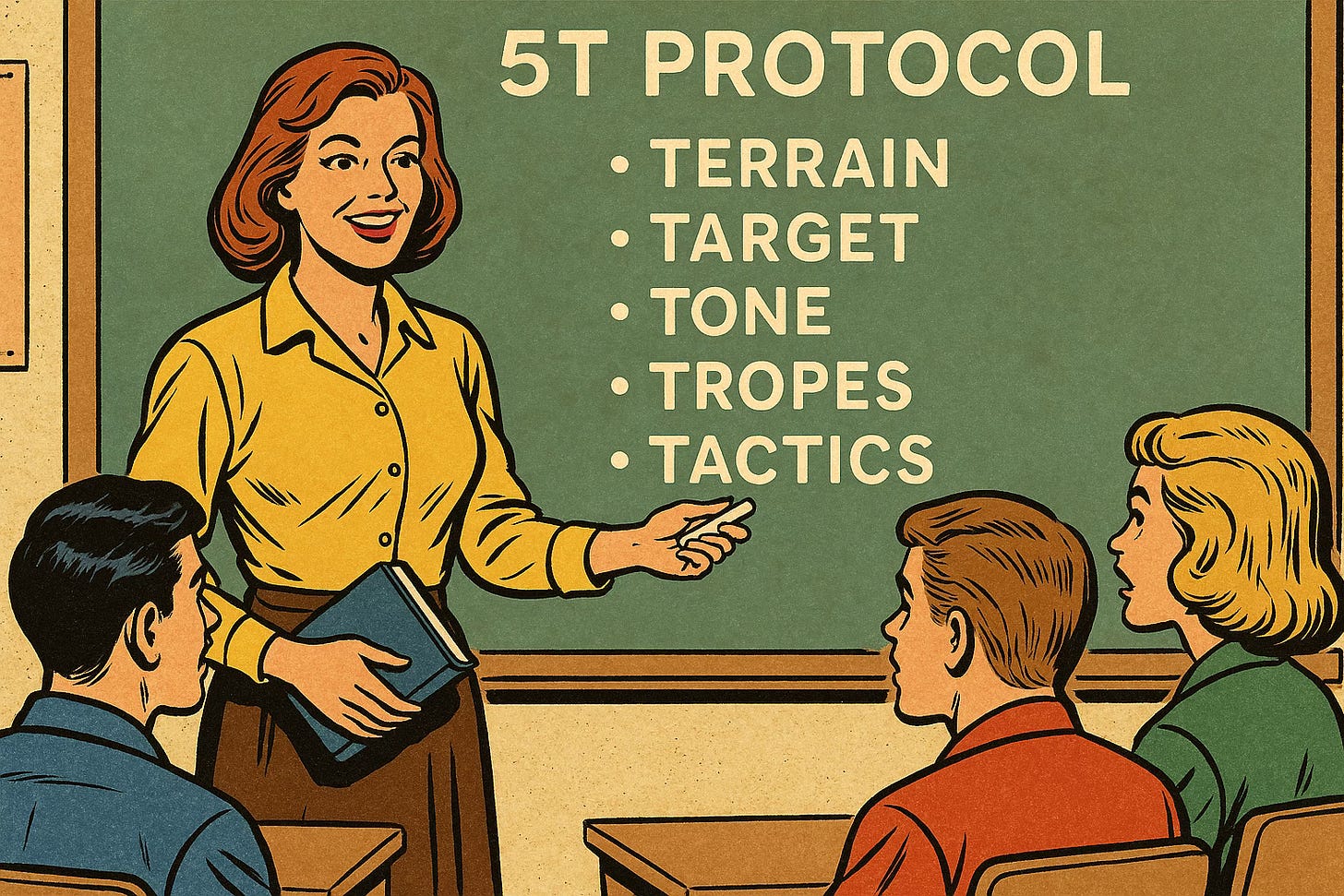
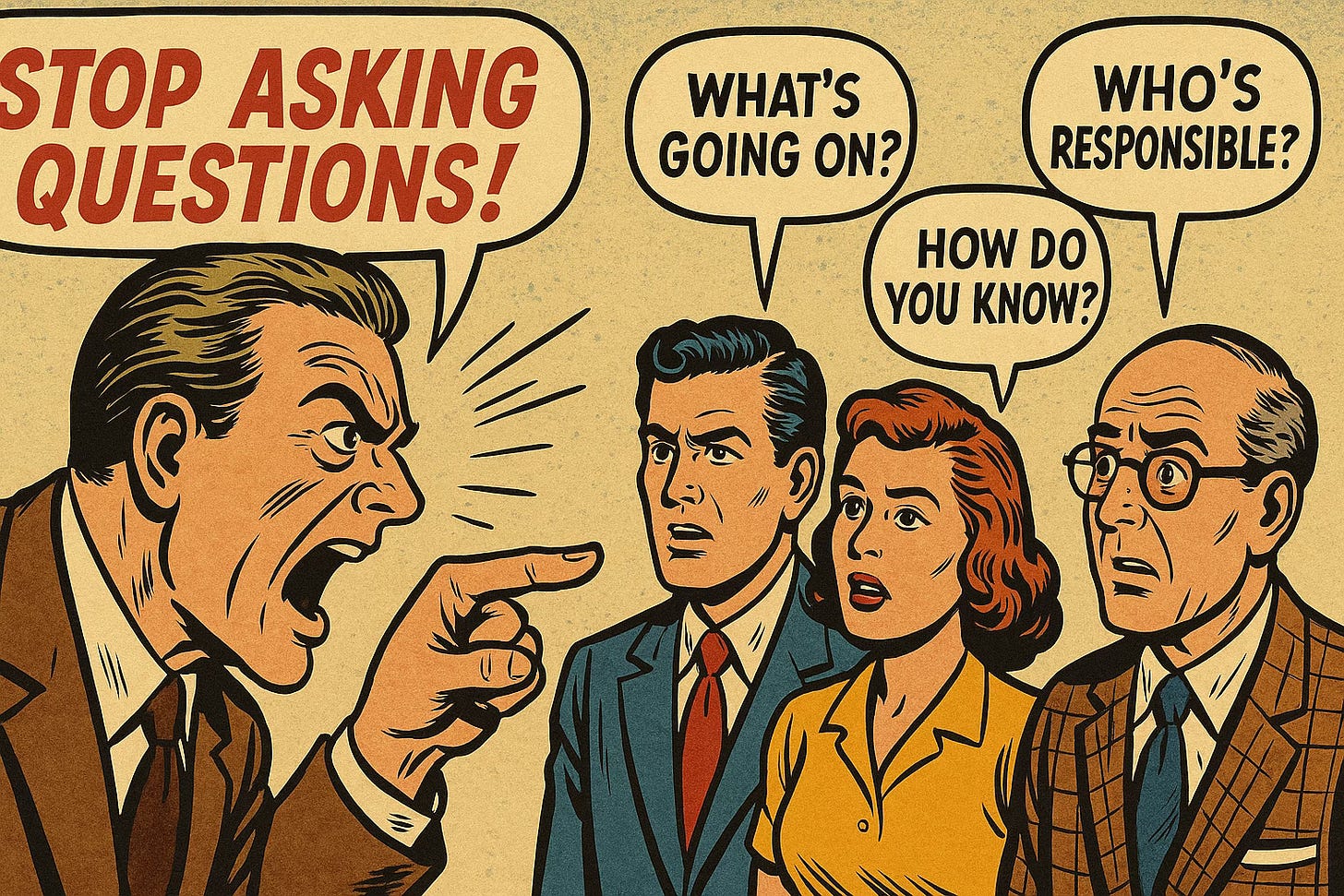
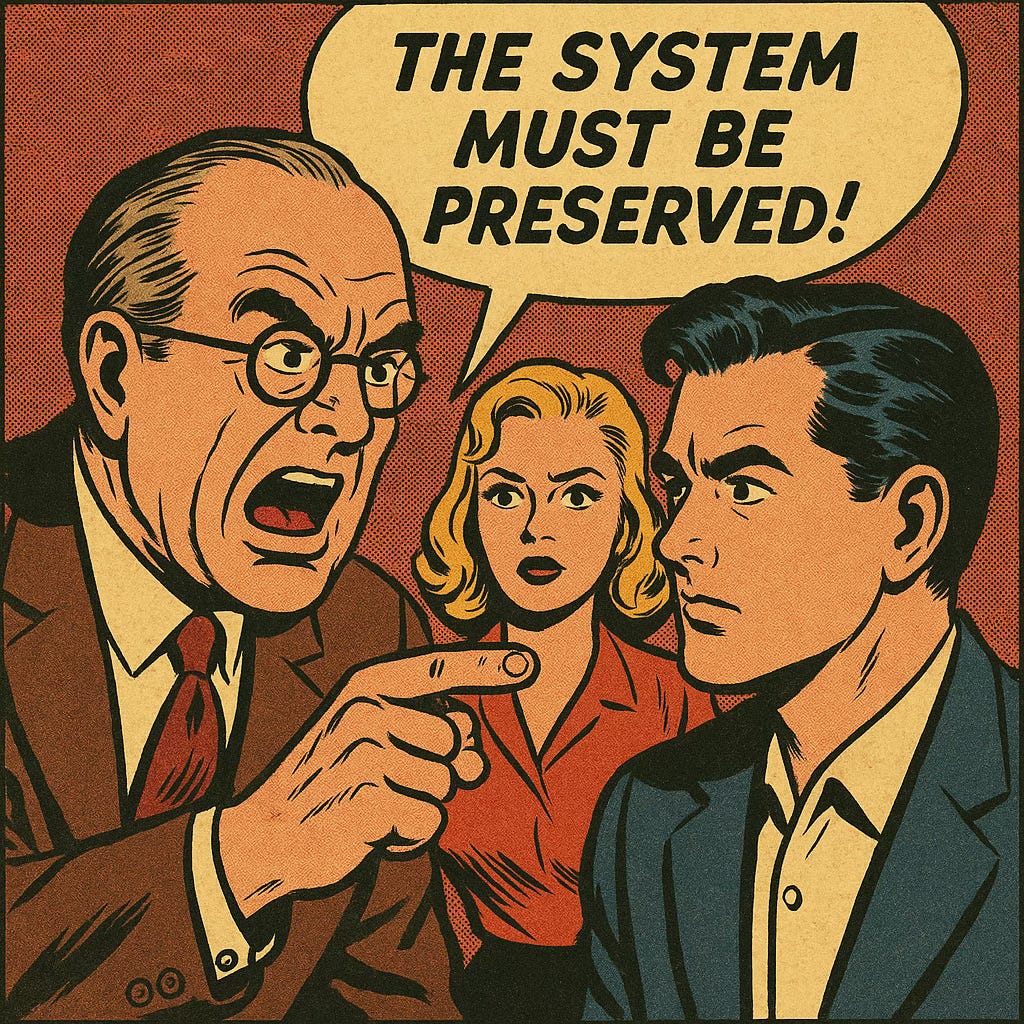
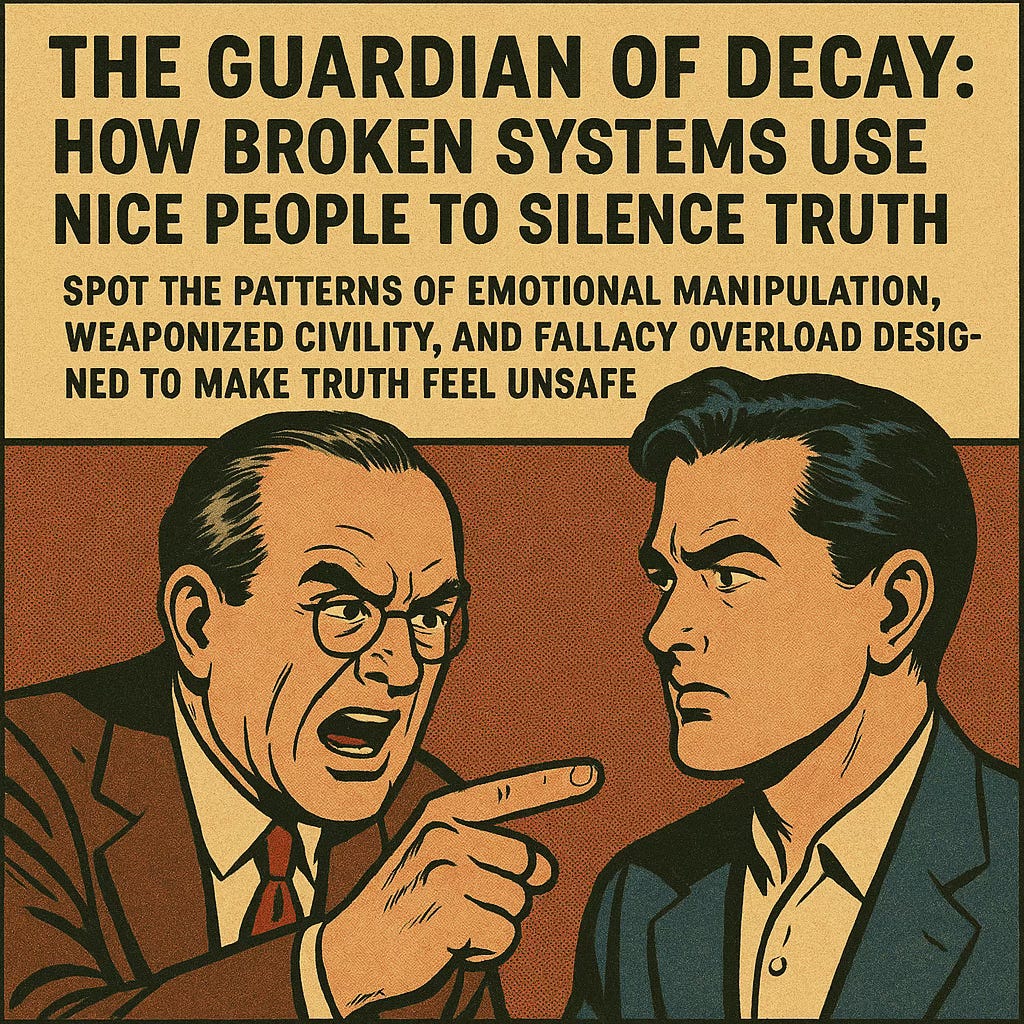
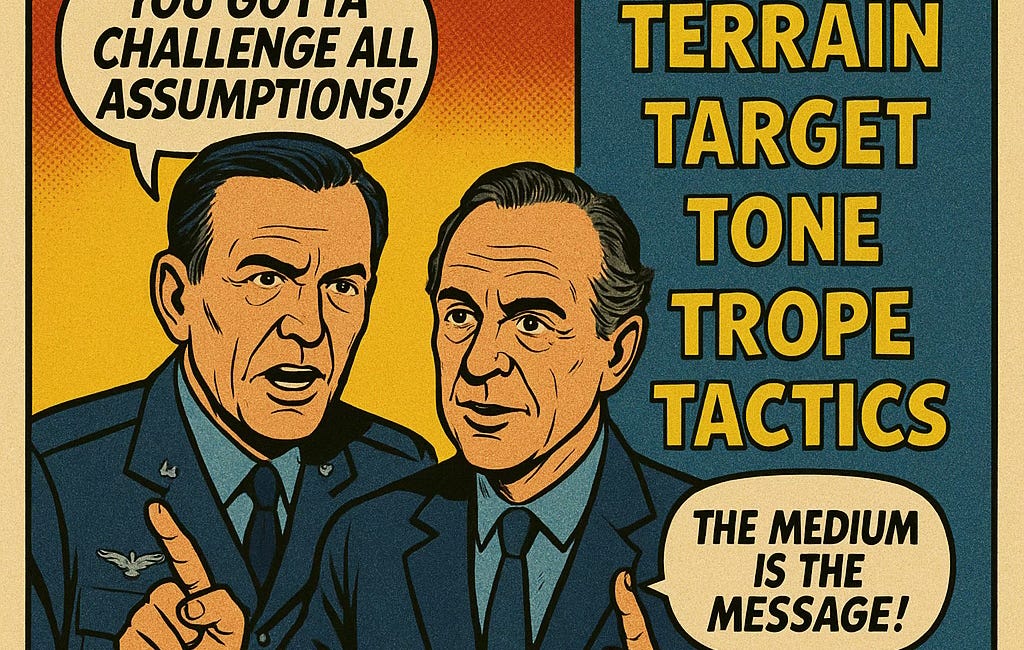
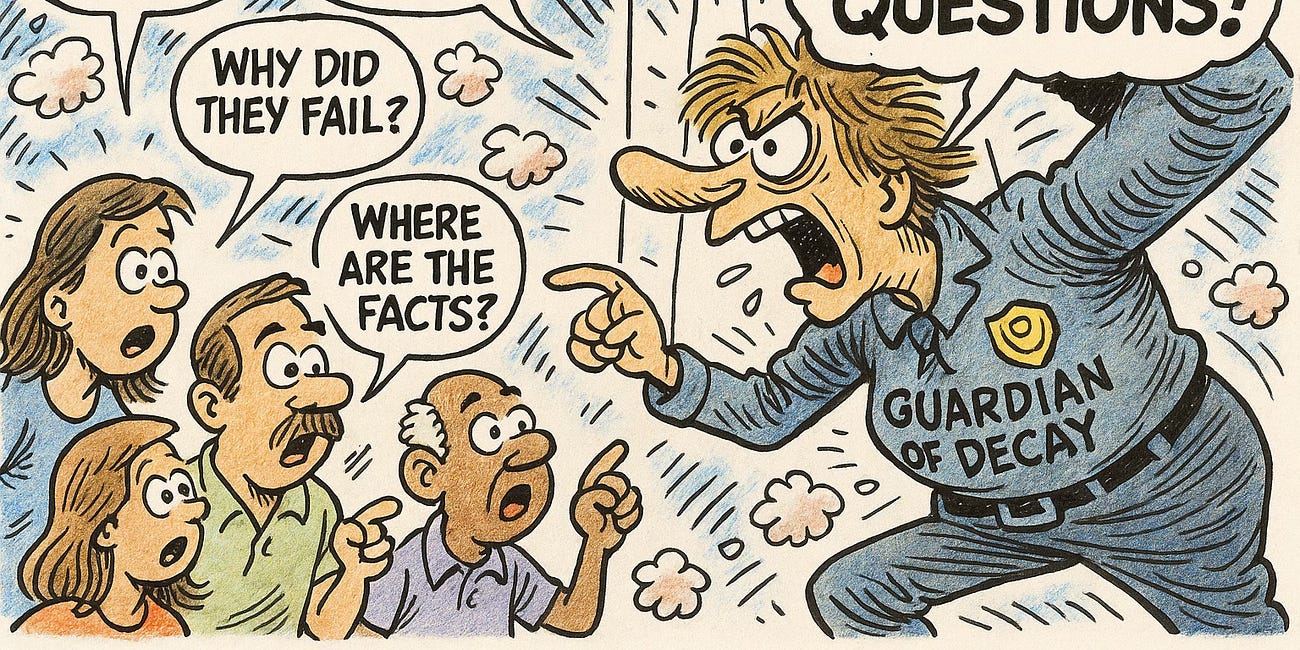
This just couldn't be any better. Clear, logical, succinct. Related, did you see Patty Murray "questioning" Robert F. Kennedy, Jr.? He responded by saying that she's been in the Senate for 32 years, and then asking her what she'd ever done to address the problem of chronic disease. She responded by demanding that the chair make him stop speaking. They should wear uniforms. "Guardian Force." Patty Murray could be a colonel.
I am a slow learner. I first heard of Boyd years ago, dabbled in the idea. It didn't take. Maybe because I was a MSM journalist at the time. (Do ya think? MSM is a carefully curated collection of conventional wisdom.) Then I got kicked out of that club. (That'll show him, they said.) Best thing to happen to me, second only to marrying a natively clear thinker. So I spent the next couple of decades learning to use my new wings. Visited Boyd et al along the way. Began to see it, to grok it. Hit Substack running, still clarifying my views. Found a home. Then I found this formulation. The Five Ts. Had to read this review piece twice but now I can say the elements are firmly established. So here goes the next phase of my life. Not starting over, just catching a new breath. Thanks.